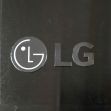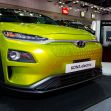General Electric Company and Carrier are at the center of a class action lawsuit that accuses the companies of selling defective fire control systems.
The lawsuit was brought forward by a disabled veteran from New Jersey, Samuel L. Kaplan. In his 144-page complaint, Kaplan and his legal team accuse the household brands of knowingly selling a defective and deceptive product.
The units in question are a combination of listed burglar and fire alarm system control products sold under the brand Interlogix. The products were sold and manufactured by General Electric Company, UTC, UTC Security, and Carrier. The Interlogix Alarm System Control units, as they are often referred to in the retail space, were sold by GE between 2002 to 2009 under the GE security name. Between 2010 to 2015, the units were sold by UTC under the Interlogix brand name. Then, from 2015 to 2020, the units were sold by UTC Security under the Interlogix brand name.
Despite having different entities marketing and selling the same units, the class action lawsuit explains that all units were sold with defects and non-conformities.
The lawsuit explains that because the products had serious defects, dangers, and non-conformities, users were not alerted when there was a fire or other emergency in the home.
“The serious defects, dangers, and non-conformities which Defendants have known about for years, and/or were required to know about for years, and long before they designed, sold, and put their products out into the stream of commerce can lead to an instantaneous and catastrophic failure of the alarm system’s combination-listed control unit during a fire,” the lawsuit explains.
Because of the defects, the units were rendered non-conforming to the minimal standards detailed by both UL and NFPA 72 Standards. The lawsuit goes on to detail that the defendants were required to ensure that their equipment was conforming before they submitted their equipment for listing by UL, one of several nationally recognized testing laboratories.
The defect within the units relates to a single data bus circuit within the control unit. If the data bus circuit wiring is damaged, shorted, or otherwise faulty anywhere it is installed within the home by a fire, then the non-conforming unit is immediately rendered non-functional.
The lawsuit explains, “In gross contrast, if the combination-listed control unit was conforming, fire attacking the single data-bus circuit of the combination listed control unit or any equipment that is required to connect to the single data-bus of the combination listed control unit will not cause the system to be rendered non-functional, since conforming to both UL and NFPA 72 Standards specifically prohibits this loss of functionality from happening.”
The lawsuit explains that the defendants had ignored and hidden the serious defect from consumers. At the same time, the defendants touted the units as being of the highest quality and safety standards because they met both UL and NFPA Standards.
In addition to selling defective and ultimately dangerous units, the defendants are accused of not removing the units from the retail space or taking the necessary action to recall or alert consumers. They did this despite being “aware that the single data-bus circuit of their combination listed control units was non-compliant to UL and NFPA regulations.”






